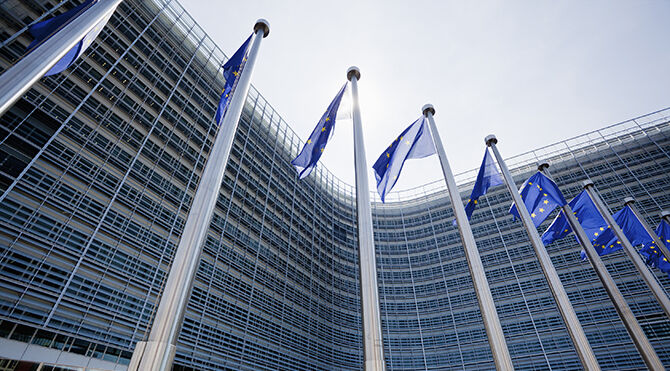Brexit talks begin as UK aims for 'historic' deal
As negotiations around the UK’s withdrawal from the European Union begin, the status of EU citizens in Britain, and that of UK expats living in Europe, were among the top priorities on the agenda.

Priorities drawn up at the EU's insistence
The two other priorities on the initial agenda – drawn up at the EU's insistence – are how to maintain a 'soft' border between Northern Ireland and the Irish Republic after Brexit, and the UK's financial obligations to European institutions and programmes.As he headed for the talks, Mr Davis said he aimed to achieve a “deal like no other in history” as officials in London insisted that the UK still aimed to open talks on future trade arrangements in conjunction with the three priorities set out by Brussels.“Today marks the start of negotiations that will shape the future of the European Union and the United Kingdom, and the lives of our citizens,” Mr Davis said.“We want both sides to emerge strong and prosperous, capable of projecting our shared European values, leading in the world, and demonstrating our resolve to protect the security of our citizens.“I want to reiterate at the outset of these talks that the UK will remain a committed partner and ally of our friends across the continent.“And while there is a long road ahead, our destination is clear – a deep and special partnership between the UK and the EU. A deal like no other in history. I look forward to beginning work on that new future today.”Initial discussions only on citizens' rights
The European Commission has insisted that initial discussions would only centre on citizens' rights, the UK's 'divorce bill' and the Northern Ireland border question. Only when these issues are settled can trade talks begin, according to Brussels.But a government spokesman in London said, “We believe that the withdrawal process cannot be concluded without the future relationship also being taken into account.”Related news:
- Business groups set out priorities on Brexit
- Lord Mayor says London must remain open to global talent
- UK manufacturers echo calls for ’soft’ Brexit
On Sunday, in a television interview with the BBC, Chancellor of the Exchequer Philip Hammond suggested interim exit measures could be in place for about two years before a final exit plan is concluded.He told the Andrew Marr Show, “What we put in place may not be a single arrangement that endures forever, it may be an arrangement which lasts for a couple of years as a temporary measure before we get to the long-term agreed status quo.“We're leaving the EU and because we are leaving the EU, we will be leaving the single market and by the way, we will be leaving the customs union.“The question is not whether we are leaving the customs union. The question is what do we put in its place in order to deliver the objectives the prime minister set out in her Lancaster House speech of having no hard land border in Ireland and enabling British goods to flow freely backwards and forwards across the border with the European Union?“It's a statement of common sense that if we are going to radically change the way we work together, we need to get there via a slope, not a cliff edge.”Mr Hammond also said that while he believed failure to reach a deal with the EU “would be a very, very bad outcome for Britain”, a possible worse outcome would be “a deal that is deliberately structured to suck the lifeblood out of our economy over a period of time”.For related news and features, visit our Brexit section.Access hundreds of global services and suppliers in our Online Directory
 Get access to our free Global Mobility Toolkit
Get access to our free Global Mobility Toolkit 
©2026 Re:locate magazine, published by Profile Locations, Spray Hill, Hastings Road, Lamberhurst, Kent TN3 8JB. All rights reserved. This publication (or any part thereof) may not be reproduced in any form without the prior written permission of Profile Locations. Profile Locations accepts no liability for the accuracy of the contents or any opinions expressed herein.






























